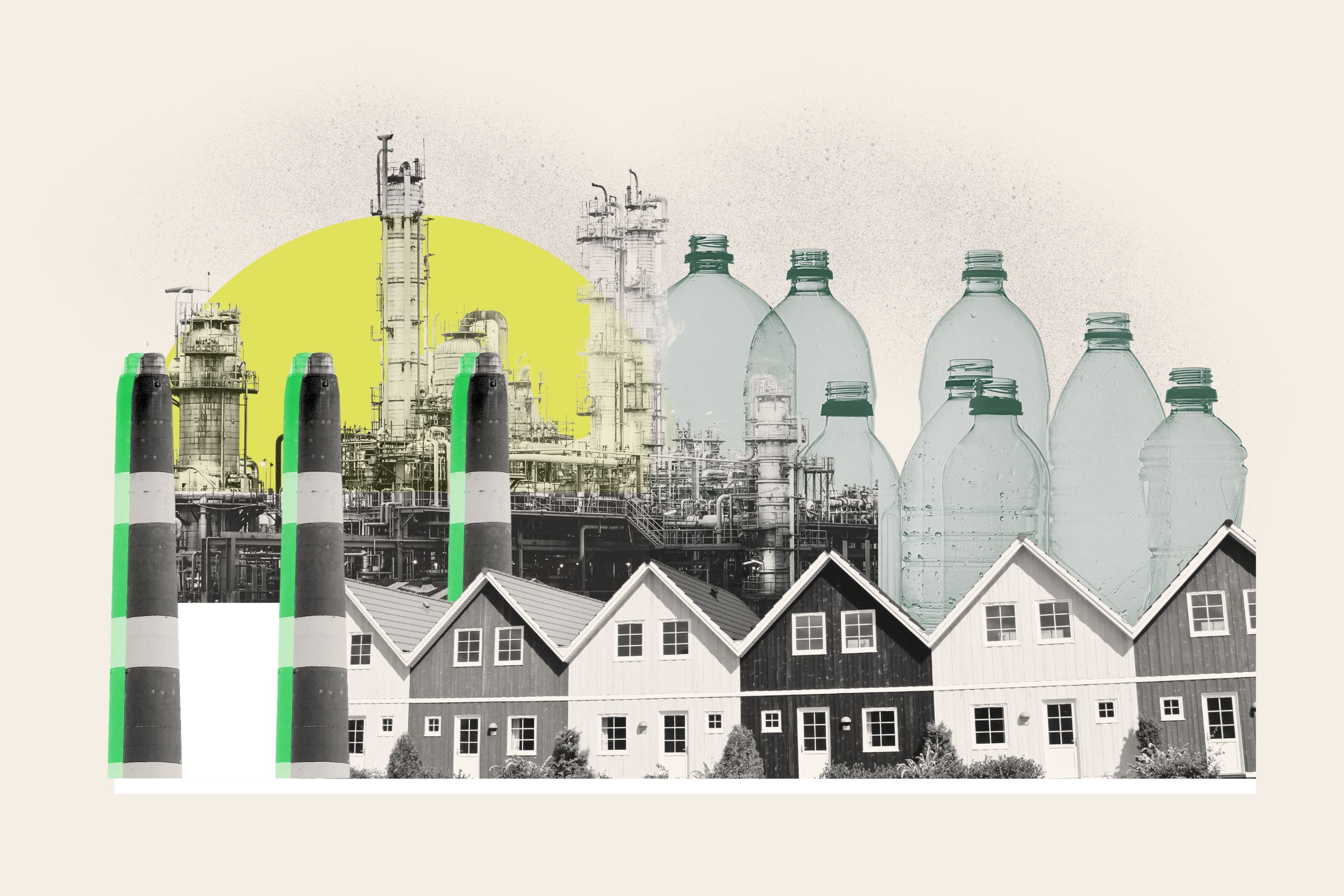More than 800 trucks' worth of humanitarian aid, already rubber-stamped by Israeli inspectors, sits on the Gazan side of the Kerem Shalom crossing in the south of the strip, Israeli officials said.
The aid, some of it perishable fruit and cooking staples, bakes and rots in the sun.
A group of journalists, escorted by the Israeli military, was shown a site close to the Kerem Shalom crossing where humanitarian organizations and other parties transporting aid deeper into Gaza are supposed to pick up the aid.
The problem, Israeli officials said, is that the aid organizations and global players don't take the aid to the Gazan population. Aid agencies say Israel has prevented aid from reaching Gaza, and the ongoing war effort is making it impossible for the organizations to work.
But both sides say looters, stealing aid from convoys heading through Gaza, remain a huge problem with no clear fix.
Hijackings 'Every Day'
In December alone, at least 1,800 trucks have made it into the strip from different checkpoints, said Colonel Abdullah Halabi, the head of Israel's Gaza Coordination and Liaison Administration (CLA).
Israeli authorities said on Sunday that more than 1,000 trucks entered Gaza the previous week.

The same day, aid organization Oxfam said that only 12 aid trucks of food and water had reached northern Gaza in two and a half months, citing "deliberate delays and systematic obstructions by the Israeli military." A "meager 34 trucks of food and water" were given permission to enter northern Gaza in that time, the charity said.
"The situation in Gaza is apocalyptic," Oxfam's Middle East and North Africa director, Sally Abi-Khalil, said in a statement.
Speaking on Thursday, Halabi said that about 50 trucks were crossing into northern Gaza each day. Another 200 on average passed daily into the strip from the center and south of Gaza, the colonel said.

Aid arrives at the Kerem Shalom site from Israel, the West Bank, Egypt and Jordan. Roughly 60 percent is flour, Halabi told Newsweek, with one-fifth of the aid food and perishables. The rest is mostly medicine, hygiene supplies and other essential items, he said. A small chunk is private sector, to be sold in Gaza, an Israeli official said.
But once aid arrives at the Gazan side of the checkpoint, the Israeli military washes its hands of the supplies. It is the responsibility of the Palestinians and international aid organizations to pick up the aid and distribute it to the population, the colonel said.
Israeli officials at the checkpoint said there are not enough trucks or drivers to take the aid through the strip once it arrives at Kerem Shalom.
"From the Israeli perspective, there is no limit of trucks coming into Gaza," Halabi told reporters. "The main obstacle, or the main challenge, is the international community's capabilities [for] distribution."

When asked by Newsweek why so much aid languishes, uncollected, another Israeli official with the CLA quickly responded: "The looters."
The scarce number of drivers who pull away from the drop-off point are attacked, officials at the site said. Halabi said some aid had been taken from civilians on the road but that looting had declined in recent weeks.
The other CLA official said looters stop the vehicles with weapons, often injuring the drivers, and violent hijackings of aid convoys were happening almost "every day," including in the hours before the journalists arrived at the site.
On December 1, Philippe Lazzarini, the head of the UNRWA, the U.N.'s Palestinian refugee aid agency, said the organization was "pausing the delivery of aid through Kerem Shalom, the main crossing point for humanitarian aid" into the strip.
"The road out of this crossing has not been safe for months," Lazzarini said. On November 16, a "large convoy of aid trucks was stolen by armed gangs," the aid chief said, adding that the UNRWA had attempted to bring in more food trucks in late November along the same route but that they were "all taken."
In a separate statement, the UNRWA said 90 percent of aid trucks were "looted at Kerem Shalom," also known as Karem Abu Salem, in November.
Lazzarini said aid was prevented from reaching those who need it by "hurdles from Israeli authorities," a lack of safety on aid routes, targeting of local police, "the ongoing siege" and "political decisions to restrict the amounts of aid."
Israeli lawmakers voted to ban the UNRWA from Israel within 90 days in late October, branding it a "terror group." The U.S. said at the time it was "deeply concerned" about the vote.
Israel has accused a number of UNRWA workers of being involved in the October 7, 2023, attacks carried out by the Gaza-based Palestinian militant group Hamas during which more than 1,200 people were killed and 251 taken hostage. Israel's war on Hamas in the more than a year since has killed more than 45,000 people, according to Hamas-run health authorities. The number does not distinguish between civilians and combatants. The UNRWA said it immediately fired staff members accused of involvement and launched an investigation.
Lazzarini said Israel, "as the occupying power," had a responsibility to protect aid workers and supplies.
It is highly unlikely that the Israeli military would ever escort the convoys through Gaza to prevent the looting. There appears to be no appetite from this on either the Israeli side or from the aid organizations.
As for the aid waiting to be transported, there is little hope it will reach desperate Gazans. The aid organizations need to coordinate between themselves to deliver it, a CLA official said: "You see how much cargo is left on the ground," and destroyed when out in the open, the official said, gesturing around the site.
Gaza Now a 'Graveyard'
The need for aid in Gaza is deep. Humanitarian organizations have consistently reported a debilitating lack of water, food, medical care, vital hygiene supplies and other essentials reaching the territory's uprooted population, many of whom have been forced to relocate several times.
A senior member of the UNRWA in central Gaza said on Friday that "an entire society here is now a graveyard. Over two million people are trapped. People continue to have basic needs deprived and it just feels like every path here that you could possibly take is leading to death."
Some organizations trying to get aid to Gazans have made deals with the looters, paying the hijackers not to attack the aid trucks, a CLA official said. Some aid agencies are targeted more than others, an official said.
Newsweek could not independently verify the claim. Tommaso Della Longa, a spokesperson of the International Federation of Red Cross and Red Crescent Societies operating in Israel and Gaza, told Newsweek that if this was confirmed, he would not be surprised.
Such reports could be reasonably expected in areas plagued by lawlessness, Della Longa said, adding that even hundreds of trucks could not reach the levels of humanitarian aid needed in Gaza.
Georgios Petropoulos, a senior U.N. official based in Rafah, the southern Gazan city not far from Kerem Shalom, told The New York Times in an article published on Monday that aid convoys faced "systematic, tactical, armed, crime-syndicate looting" by organized groups.




















 English (US) ·
English (US) ·